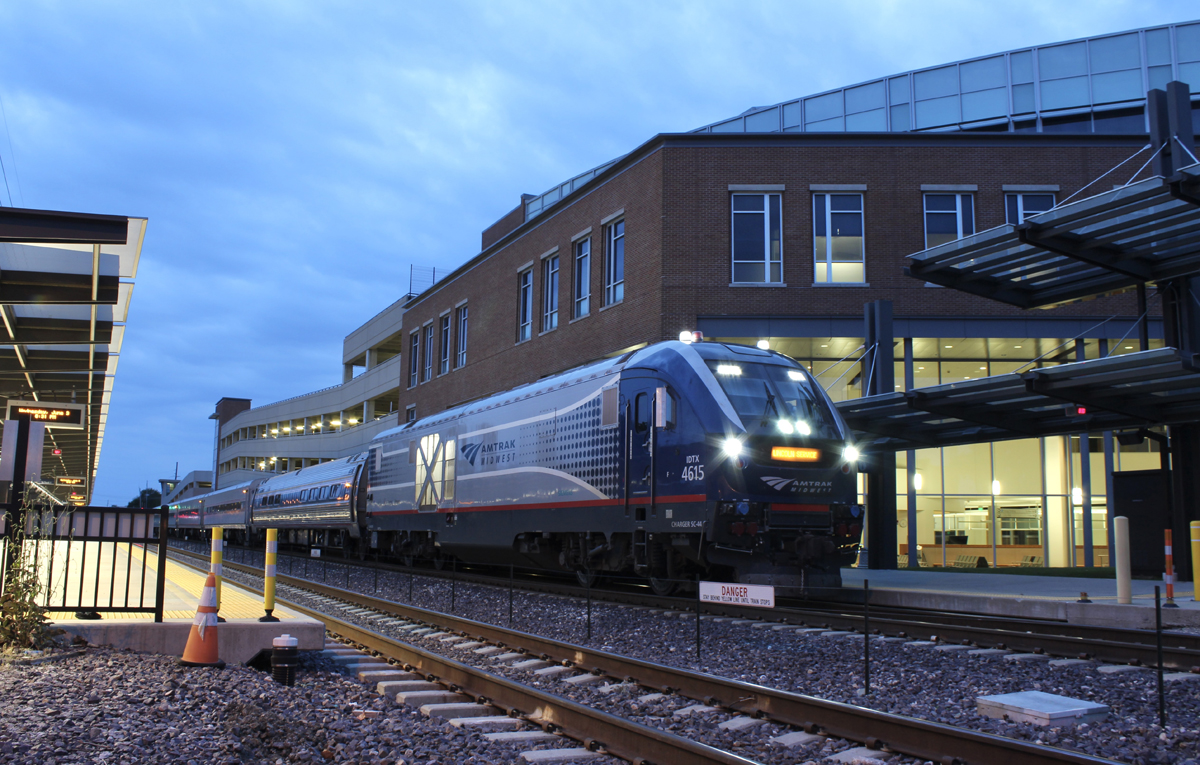
CHICAGO — On short notice, Amtrak has cancelled one Chicago-St. Louis Lincoln Service round trip for more than a week as of Thursday, July 17, and implemented a complicated Floridian cancellation scenario that began Friday, July 18, and runs through Aug. 3.
Other regional services and long-distance trains continue to suffer hours-long delays, cancellations en route, or tardy departures from terminals.
Buses began substituting Thursday for Lincoln Service train No. 301, the 7:15 a.m. Chicago departure, and train No. 306, scheduled to leave St. Louis at 5:40 p.m. The substitution will continue through Tuesday, July 29. An Amtrak service advisory notes there are four other trains each way. The bus stand-ins, Nos. 3301 and 3306, respectively, improbably list the same arrival times as the trains they are replacing for each intermediate stop. Given Interstate 55 congestion around Chicago and St. Louis, this seems unrealistic.
No reason is given for the change, but “equipment availability” has been cited as the reason for other recent last-minute Midwest annulments, which included the same two trains plus No. 302 on July 15.
Meanwhile, the month-long bus substitution east of Albany-Rensselaer, N.Y., for the Lake Shore Limited’s Boston section that began in late June is continuing indefinitely, despite an Amtrak service alert saying it will end next week. The company’s booking system is showing a Chicago-Boston train No. 448 and 449 itinerary “sold out” through Nov. 30. The seasonal Berkshire Flyer is also affected, with a bus substitution between Rensselaer and Pittsfield, Mass. A sinkhole west of Pittsfield that will require extensive work and expense to repair is the issue; the Berkshire Eagle newspaper and following reports that a sinkhole under CSX tracks west of Pittsfield, Mass., will require extensive work and expense to repair. The Berkshire Eagle newspaper and WNYT-TV are both reporting service disruption could extend until January.
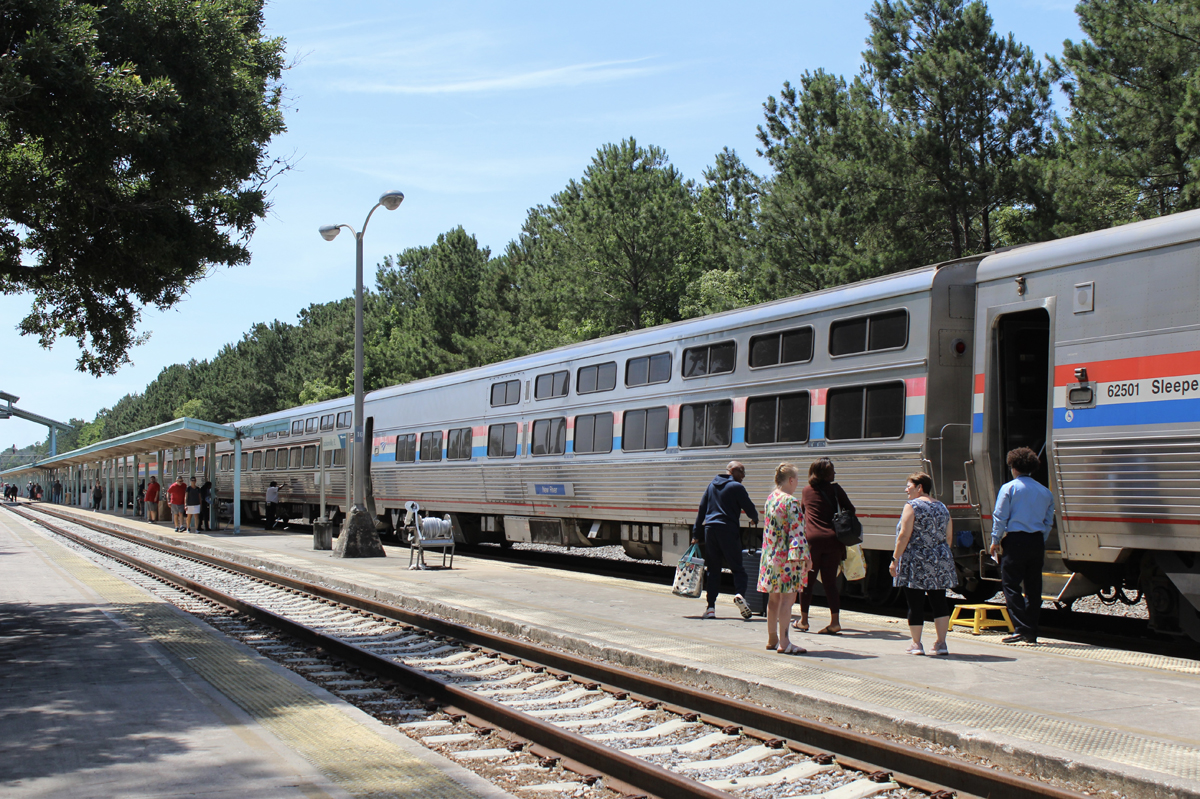
Track outages on CSX have also triggered confusing Floridian cancellations that began Friday, when the westbound train arrived in Chicago seven and a half hours late. As outlined in a recently posted service alert, the train won’t be running two days per week between Chicago and Washington, D.C., and is cancelled one day per week between Washington and Miami.
The eastbound/southbound Floridian departing Chicago on Fridays and Washington D.C. on Saturdays through Aug. 2 is cancelled all the way to Miami; the following day (Saturdays, July 19, 26, and Aug. 2 from Chicago) it is only cancelled as far as Washington, D.C. The northbound Floridian leaving Miami on Sundays (today, July 20; July 27; and Aug. 3) is dropped as far as Washington. Train No. 40 is cancelled from Washington to Chicago on Saturdays and Sundays through August 3. The dates listed on the service notice are not necessarily the same for all intermediate stations, temporarily reintroducing the confusion Amtrak injected with its long-distance cutbacks to triweekly departures beginning in October 2020. This will place a predictable strain on coach and sleeping car inventory, particularly for connecting east-west passengers.
Last week also had its share of lengthy delays to long-distance and regional trains. Hard-hit service included:
— Acela No. 2162 from Washington to Boston died in New Jersey on Monday; No. 2163 from Boston was later cancelled. On Thursday, Acela No. 2124 broke down between Baltimore and Wilmington, Del.
— The Chicago-Grand Rapids Pere Marquette did operate in either direction last Monday after the train to Michigan became disabled at Benton Harbor Sunday night
— The westbound Southwest Chief leaving Chicago on July 16 was delayed almost 15 hours into Los Angeles by severe weather, freight congestion, and a “locomotive assessment.” To their credit, Los Angeles mechanical forces executed a relatively on-time departure for the evening’s eastbound train utilizing stand-by equipment.
— The eastbound Texas Eagle was delayed four hours at Mineola, Texas, on July 17 as a result of a Union Pacific track blockage, then detoured to Texarkana. Passengers from Marshall and Longview, Tex., were bused to Arkadelphia, Ark.
— The eastbound California Zephyr was delayed seven hours on Friday between Reno and Winnemucca, Nev., due to a “disabled [Union Pacific] locomotive blocking the route,” according to an Amtrak advisory. That delay extended throughout the trip, departing Denver at 2:26 a.m. today and arriving in Chicago at 8:56 p.m., six hours, 17 minutes late. That arrival only allowed arriving passengers to make connections with the eastbound Lake Shore Limited, scheduled to depart at 9:30 p.m.
— Updated at 9:35 p.m. CT with California Zephyr arrival in Chicago.





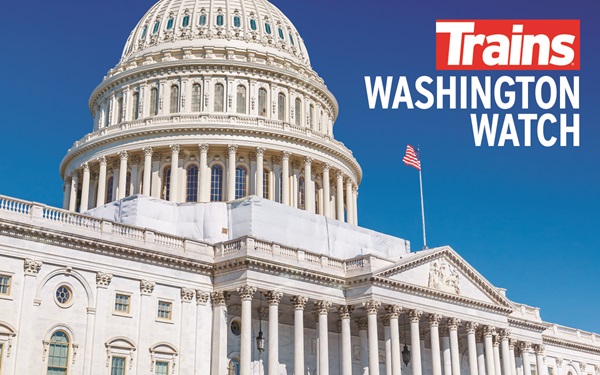
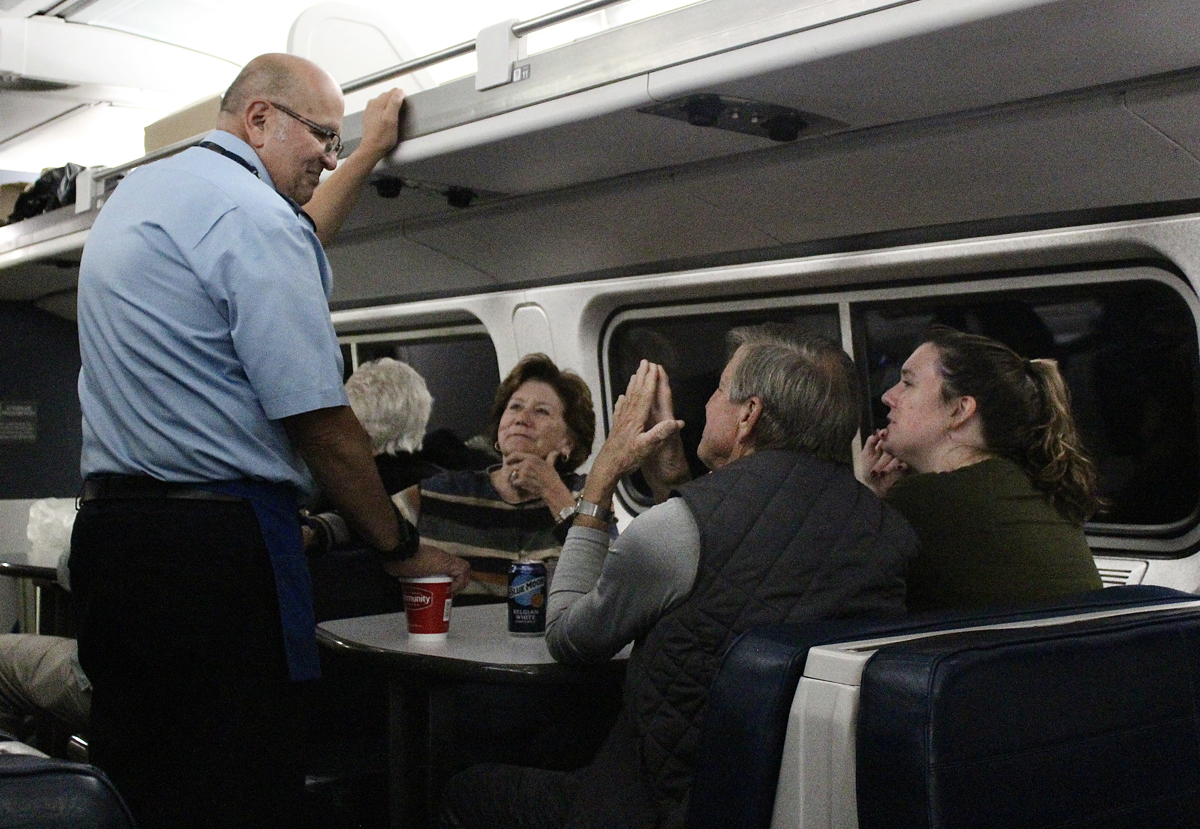

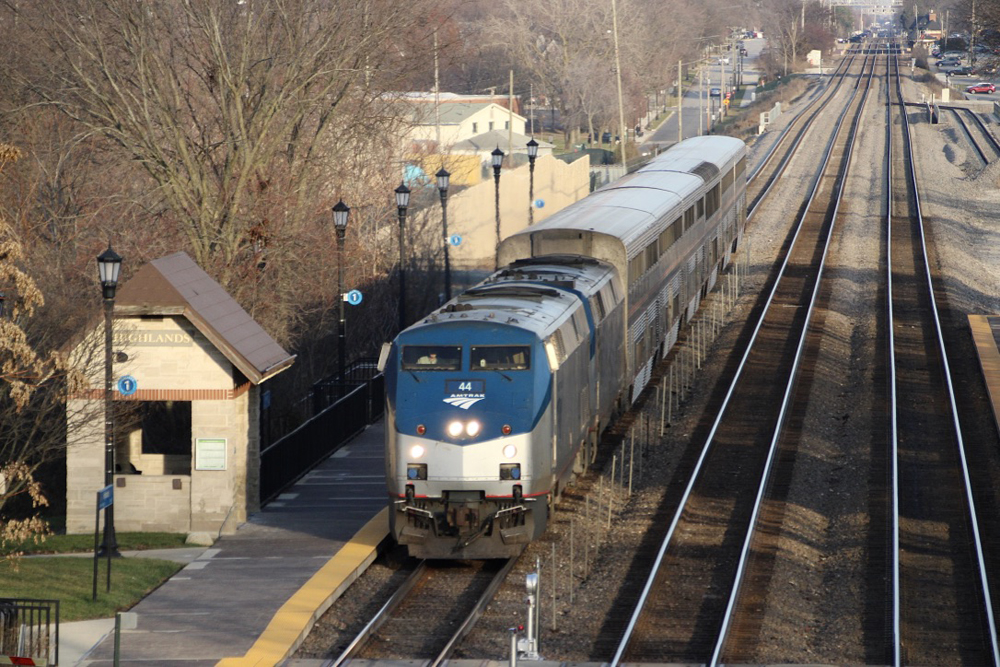
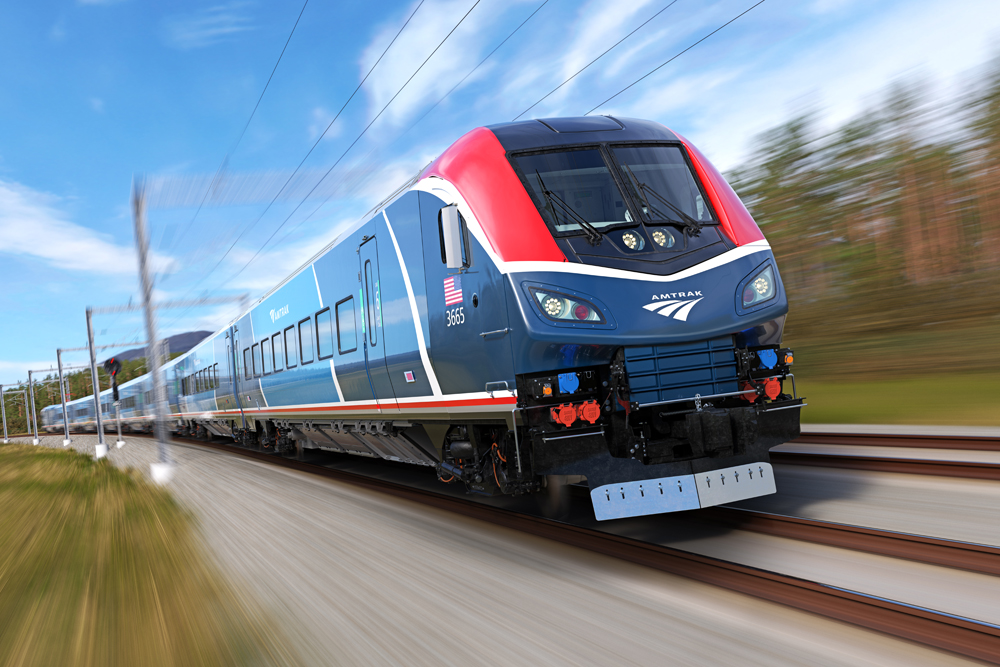





As the meltdown continues for the Amtrak long-distance network, it remains clearly obvious that Amtrak’s current top-management, and the Board of Directors, are deliberately chosing to downgrade, and eventually eliminate, all long-distance trains! There is no other explanation for the sheer ineptitude and ineffective way that today’s Amtrak system is being operated!
The critical shortage of equipment assigned to long-distance trains, the lack of dining cars and lounge cars on every long-haul route, the prevention of coach passengers from eating in the few dining cars that operate, the constant train cancellations and bus substitutions, etc., are all SELF-IMPOSED failures of a government-based, group of executives and managers who have no concept of railroad operations!
Amtrak executives have clearly demonstrated that they DO NOT SUPPORT and are NOT INTERESTED IN, true long-distance train service! They are not forward-thinking. They are not marketing-oriented. They are not customer-focused. They are not nimble and not responsive to changing operating conditions.
All of us who are passenger train advocates and supporters, need to contact our Senators and Congressmen, as well as Transportation Secretary Duffy, to push for the re-organization of Amtrak! Split Amtrak into two-parts — a Corridor Division based in Washington and a Long-Distance Division based in Chicago. Keep the central functions of human resources, accounting, payroll, real estate, capital management, equipment maintenance/rebuilds, etc., under the basic umbrella of the Amtrak Corporation. But split apart corridor operations and corridor marketing into one unit. Split long-distance operations and long-distance marketing into a completely separate unit staffed by knowledgeable railroad operation employees!
Without a restructuring, the current Amtrak business model is on a self-imposed glidepath to eliminate long-distance routes by simply making the trains so unworthy of usage by the public, that people will just stop riding altogether! The last few years of former airline executives being in charge of Amtrak has seen the greatest unraveling and greatest decline of Amtrak’s service than previous years! And the Amtrak Board of Directors has ONLY ONE MEMBER who has prior railroad experience! The future for Amtrak is not looking good.
Myself and some others have been saying to split off the NE corridor from the long distance trains for years. I’m sure many others have similar thoughts.
I actually would now look into having a foreign rail operator, probably after establishing an American subsidiary so the parent company can’t go broke under the out-of-control civil litigation awards, take over at least the NE corridor and possibly the entire Amtrak network. I don’t believe there’s enough developed top talent any more in North America to actually run good passenger rail service at all levels.
Hi Steve — What is the name of your group that is pushing for the split of the NEC and long-distance trains? How can we join? How often is your group writing to, and meeting with, Senate and Congress members to advocate for this change in Amtrak’s structure? What is the status of the group’s work so far?
Right on, clearly the management cuts at Amtrak have not gone anywhere near what is needed to remove the rot and bring in experienced railroad management.
I was wondering where they would get the equipment for Mardi Gras service. Just cancel other trains. And what happened to the new Acelas?
The Mardi Gras train is already here making familiarization runs between Mobile and New Orleans. But it wouldn’t surprise me one bit given the way Amtrak does business these days, if we see buses filling in a large part of the time.
Driving down the coast to New Orleans from Mobile has gotten pretty bad traffic wise. I’d definitely not want to be stuck on a bus for the trip.
Yeah, no freight trains use that line.
Anyone remember the story of the washout on the B&A? Perlman goes to the scene and tells the railroad’s chief engineer to show up in his “foul weather gear.” The guy shows up in tennis shoes and a raincoat. The boss asks him how long it would take to fix. The engineer gives an ETA of weeks. In a proper dressing down Perlman points to a hill on an adjacent farm and says, “Go talk to that farmer, buy that hill and use it to fill in the hole!” Suffice to say that engineer wasn’t around for much longer. Nevertheless, there’s a lot of “tennis shoes and raincoats” in the field these days.
The sinkhole is not “under CSX tracks west of Pittsfield”. Yes it is west of Pittsfield but under the Amtrak-owned Post Road Subdivision which connects the Albany/Rensselaer depot with the CSX Berkshire Subdivision at CP187. The Pittsfield Amtrak station is just east of CP150. If Amtrak cared, the bussing could be reduced from Boston-Albany to Pittsfield-Albany by operating Nos.448/449 with an engine on both ends Boston-Pittsfield and having it flip right back. The scheduled stops at Pittsfield were within 15 minutes of each other.
So, is the former backup move route for the Boston section no longer viable? Let’s just change the name to Ambus and sell off the rail equipment and start from scratch. I was going to take the train from Toledo to Denver but now I’m considering flying instead. Just to unreliable.
I was wondering why Amtrak didn’t do the Castleton shuffle that the Lake Shore Limited did prior to 1979
It’s the same old story… The annoying consequences of Amtrak not owning its own tracks.
Dr. Güntürk Üstün
AI gunk, AMTRAK OWNS THE POST ROAD , stupid computer trash, and we have to pay to read this GUNK
By the way, it’s high time to replace the veteran Acela HST sets that are almost 25 years old…
Dr. Güntürk Üstün
Why? The older X2000s and ICE-1s are still in daily service.
Note that SJ’s X2000 and DB’s ICE-1 HST sets are both refurbished/renovated during their service life.
Dr. Güntürk Üstün
Hmm. Imagine that. So what makes X2000 and ICE-1 suitable for refurb but not the Pig?
The Acela HST sets currently in use are almost falling apart and the Amtrak mechanical department can’t fix them anymore (Alstom also has no reason to keep supporting them)… Once the new Acela (Avelia Liberty/NextGen Acela/Acela II) HST sets actually come out, these old Acelas will most likely be scrapped… Let’s hope that at least a power car (and some passenger cars) will end up at at a railroad museum.
Dr. Güntürk Üstün
My guess is that I’ll live out my years riding the corridors but never again an LD. I can barely count the number of Amtrak or VIA routes I enjoyed but have since been discontinued, or have had reduced frequency, or have bombed out as far as reliability or amenity.
Reading David Everitt’s comments, I’ve ridden the Lakeshore both to/from Boston and to New York, and on this end, to/from Chicago and Toledo. Why would I do that again? Who wants to ride a train that’s chronically 3, 4, 5 hours late?
The Lake Shore will probably never ply the Boston Line again. The train is only on time west bound because it is at the beginning of its journey. East bound it is 3,4 or 5 hours late all the time. It is a poor excuse of a train too. Usually, more engines getting moved than passenger cars. The sink hole hasn’t disrupted freight trains on the line.
After some research, the problem track is on the cut-off to Albany.
Problem is, the Post Road cutoff is Amtrak trackage, has to be fixed at Amtrak expense. Too bad, it’s a real nice route through some of the greatest scenery in the eastern states.
Before the Post Road cutoff was (re)built, I stood beside Amtrak President Paul Reistrup watching the backup movement at the Selkirk Bridge.
Yeah, no freight train use this line.
David Everitt is correct. Trans 448/449 are history. Amtrak officials in DC want it gone, this pathetic, anemic-looking 4-car train (1 sleeper, 1 cafe car, 2coaches) and they know MassDOT, the governor, and legislature don’t care (assuming they even know the trains exist). They’ll get no resistance from that useless Meredith Slesinger who heads up what purports to be a Rail and Transit Division of MassDOT. Amtrak will keep pushing back the completion date for the stabilization of the Post Road Subdivision and the restoration of Trains 448/449, well into 2026 by which time everyone will have forgotten those trains ever existed.
And to spread the blame around even further, when I think of what the $$$$ sunk into that disgraceful money pit that is CAHSR could have bought and built to enhance and expand conventional Amtrak services nationwide, NY/BOS-CHI is them. Think of how great it would have been to double the service with a through NY-CHI with BOS connection, and on a complimentary schedule, a through BOS-CHI with an Empire State Service connection (eliminating the switching at ALB) and the capacity and operating flexibility additions on the freight-intensive route Selkirk Yard-CHI that would have been necessary to keep operations fluid. But the pointy-headed liberals in the Obama administration just had to have high-speed rail because the concept of being able to walk (passenger trains operating reliably at 79mph) before you can run (HSR at a floor of 110mph) was totally lost on them. (No I’m not a MAGA and I think what’s been coming out of the current administration since 1/20/ 2025, including the building of NAZI-styled concentration camps being sold as “detention centers”, is tearing this country and the “rule of law” and the “constitutionally specified “separation of powers”, apart.)